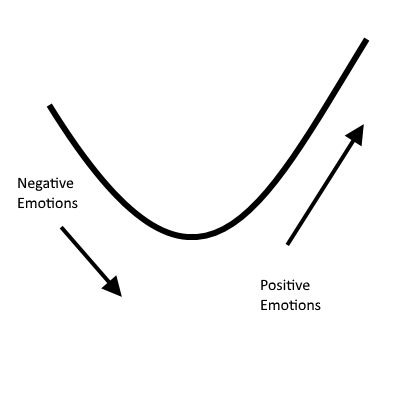Leadership Mindfulness Great Resignation
As a Leader, Celebrate Every Departure
Posted on .Once someone has made up their mind to leave for a new job - once it's final and there is no convincing them otherwise - it is time to celebrate.
Yes, every time.
People leave jobs all the time. It is one of the great things about the USA: our freedom to take our talents where we like for the best or most benefit. And that system works best when people feel confident and mobile in their careers.
This doesn't make it any less painful for the company that loses an employee. Often, this is very inconvenient and can feel scary.
Of course, if you are working hard to build trust you will get the opportunity with some people to intervene early, but even then, things are going to happen, people will be headhunted, and you will have instances of the grass looking greener. People will leave.
When they do it is time to celebrate their accomplishments, both individual and team based, and to wish them well. Not just on the surface, not just as lip service, but also honestly and with the joy of seeing people succeed and move on.
My path to this realization has been long. It isn't that I wished people ill or got angry. I always tried to be supportive, but inside I was often full of fear - this person was key to an account or integral to a project, how will we succeed without them.
But really, what else can be done? Holding on to resentment isn't helpful. They're going to leave anyway. This is a thing to celebrate and I believe that regardless of the circumstances celebrating is appropriate.
It was a sales manager that I worked with that really made me see this. He finally had to say to me, "You're hanging on every person who leaves with a lot of stress. What if you celebrated all of them instead? We should be happy that they have grown and can be successful. We need to let them go."
It went against a lot of years of fighting to keep everyone all the time, but I came around. Here are my reasons why:
- Show your employees that you care about their long term success. By celebrating each person who leaves you show them, publicly, that you don't harbor any hard feelings toward someone.
- Make it easy for people to come back - when someone goes and you celebrate you build up good feelings that make them think of you when they are looking again (it may be sooner than they think).
- Build team resilience - if the team sees that you are celebrating the departure because it is a natural part of life, they will move more easily through the change making them and the company more resilient. Being in resistance to the change will not make it easier and it won't stop it from happening.
- Move more freely to the solution - once you stop resisting that it is happening you can think about what to do in the short term and long term.
This is challenging. As I've written in the past, you can't expect everyone to move as quickly in their response to change as you can. As a leader you're likely more adaptable and more experienced with change.
This is especially true when people are leaving. Be sure to include time in your celebration for the sadness people feel - let the celebration be part of the process of moving on. But don't let the sadness overwhelm or define the event.
In this case, you may need to push yourself as a leader and a manager - maybe you need to move through the curve even a little faster than you're comfortable with. Use it as an opportunity to grow. Say goodbye and stay in touch with people, they may have opportunities for you in the future.
Build the best work place you can, build culture, work to retain people, work extra hard for the superstars. Do all that. But eventually some will go. Take a deep breath, you did everything you could, time to celebrate as they move on to the next adventure.

